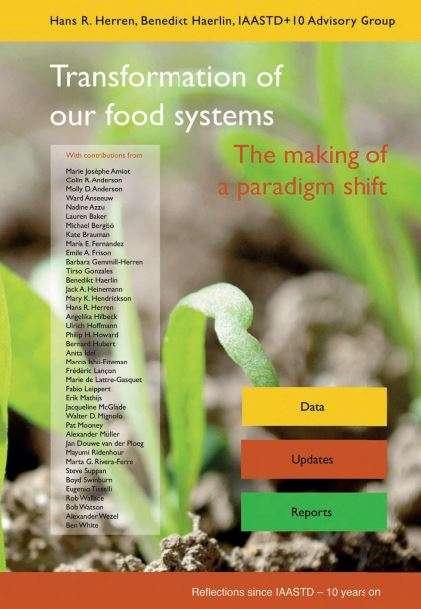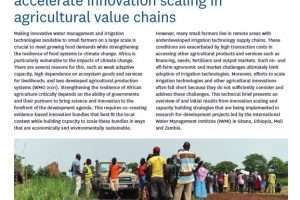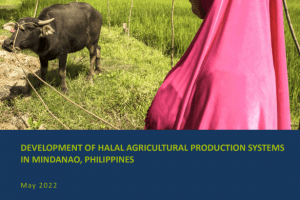In this book, the authors of the essays and short stories are illustrating, in a narrative form and their own words, the “behind the scene” stories about these and other landmark reports that have emanated from the IAASTD. It is hoped that with this book we attract the further attention of decision makers to the challenges, the solutions, and the actions necessary to address them. Food is a human right, and it is the responsibility of governments to ensure that all have access to the right quantity and quality of healthy food at an affordable price, which has been produced for the long-term from resilient systems, many of which must be rebuilt on the ruins of degraded soils, lost biodiversity and impoverished farmers. It’s high time that our food systems pay attention to the word regenerative, as sustainable and resilient systems can only function as such in fully restored ecosystems. Time is ripe to move from exploitation to management of our life supporting ecosystems.
With a major gathering planned under the auspices of the UN Secretary General, Food System Summit in 2021, managed by private foundations and private sector representatives, this book could not be timelier, bringing a strong warning that “business as usual is not an option”, and that if this is not heeded, it’s not people but the irrevocable damage to nature that will destroy our civilization. One could ask where were the initiators and leaders of the 2021 Food System Summit over the past 11 years? It is clear that food systems and the value of a “systems approach” has been suddenly (re)invented and re-interpreted. We must defend the narrative we have developed in 2009 and refined since, which is now very much in jeopardy again and keenly aware of the impacts of the cooptation of language while continuing on the same path. History has a tendency of repeating itself.
This book is a treasure trove for decision makers with any kind of responsibility across the food chain. It is also relevant to the general public as it explains clearly what the consequences of their choices are. Our hope is that decision makers, NGO officials and the wider public read this book and do their absolute best to implement its lessons – our current and all future generations will be eternally grateful if they do.





Add Comment